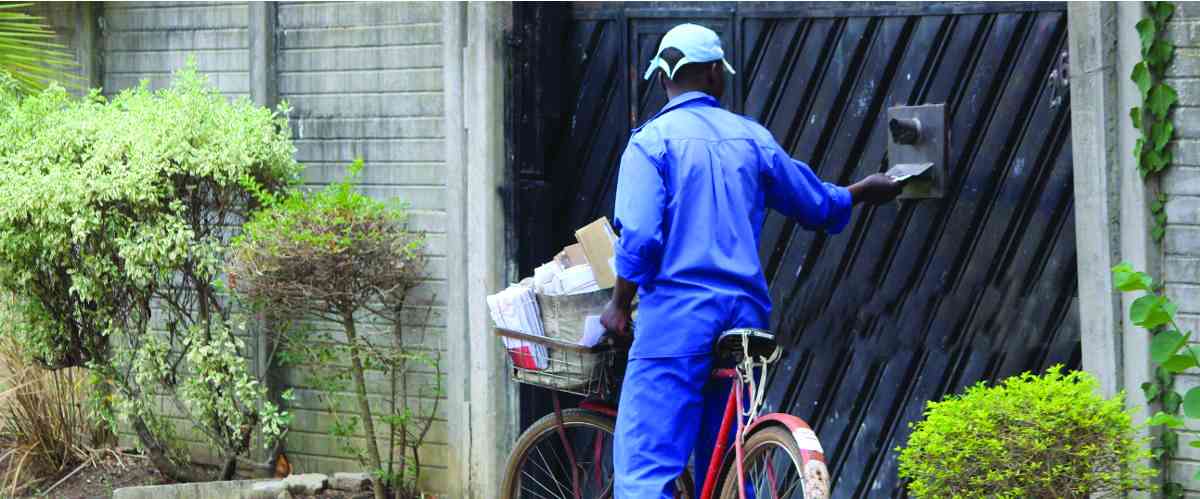
Once upon a time, the letterbox stood proudly at Zimbabwean homes — a silent messenger of communication. It held love letters, job offers, university acceptance letters, government correspondence and the dreaded bills. Its mouth opened to possibilities, binding families and communities across towns and cities. But today, the letterbox is rusting, silent and obsolete.
Even the post office boxes and bags were prominent. The world has moved on. And Zimbabwe must, too. Access to an email address, a smartphone and a mobile number is no longer a luxury. It is now a necessity in Zimbabwe. The digital revolution has swept across the globe, and Zimbabwe is not immune.
ZimPost, Zimbabwe's traditional postal services company, has suffered such as operators in the rest of the world. Post offices, once the heartbeat of communication, are now becoming redundant relics in an age of instant messaging, cloud storage and social media. The letterbox, once a household staple, has died a slow and silent death. But its demise brings new opportunities.
Email address: Your digital identity
An email address is more than just an online mailbox. It is your digital passport. Job applications, university admissions, government tenders, bank statements, online purchases and even medical appointments require an email address. In Zimbabwe, many young people are missing out on opportunities simply because they lack this basic digital identity.
With free platforms such as Gmail, Yahoo, and Outlook, creating an email address costs nothing but a few minutes. Yet the impact is enormous. It opens up a world of possibilities such as e-learning platforms. These include Coursera and Khan Academy, job sites such as CV People Africa or Jobs Zimbabwe and professional networking platforms such as LinkedIn.
For entrepreneurs, an email address gives legitimacy to their brand. For students, it is a direct line to knowledge. For the unemployed, it is a bridge to opportunity. It is time every Zimbabwean, regardless of age or location, owns an email address. I hope that the government makes it mandatory.
Smartphone: The modern day toolkit
- Mavhunga puts DeMbare into Chibuku quarterfinals
- Bulls to charge into Zimbabwe gold stocks
- Ndiraya concerned as goals dry up
- Letters: How solar power is transforming African farms
Keep Reading
The smartphone is now your student companion. It is a library, a bank, a camera, a notepad, a GPS and a radio. Everything is rolled into one device.
While many Zimbabweans do own mobile phones, the gap between basic phones and internet-enabled smartphones remains a critical divide. Access to a smartphone empowers citizens to bank via EcoCash or OneMoney, access news in real time, join community WhatsApp groups for information and assistance and attend virtual meetings. During the Covid-19 pandemic, the smartphone emerged as a lifeline for remote learning and mobile clinics.
Going forward, smartphones will play an even bigger role in mobile governance, disaster alerts, and digital literacy.
For rural communities, the smartphone is a bridge to the rest of the country and the world. From market prices to weather patterns, farmers can now access crucial information at the tap of a screen. Small scale businesses can advertise products through WhatsApp, Facebook Marketplace or TikTok, finding customers beyond their immediate locality. Simply put, a smartphone in every pocket means power in every hand.
Mobile number
A mobile number may seem basic in this day and age, but it remains foundational. In Zimbabwe, where formal addresses can be inconsistent or non-existent, a mobile number often replaces the role of the letterbox. Whether it is for job call backs, doctor reminders, school notices or delivery confirmations your phone number is your contact point with the rest of the world.
Additionally, many governments and financial services now use mobile numbers for verification and identification. Losing access to your number can mean losing access to mobile money accounts, your email and social media logins. For this reason, mobile numbers should be registered, secured and treated with care. They are no longer just digits; they are part of your digital self.
Bridging the digital divide
To truly replace the letterbox, Zimbabwe must prioritise digital inclusion. This means investing in affordable data packages, removing smartphone import taxes, expanding rural network coverage and launching nationwide digital literacy campaigns. Libraries, community centres and schools should teach basic digital skills, such as how to set up an email, protect your information and make secure online transactions.
Non-governmental organisations, private sector players and the government all have a role to play. A connected citizen is an empowered citizen. In the long run, this digital shift can boost job creation, improve education outcomes, strengthen governance and build a more resilient economy.
The letterbox has served Zimbabwe faithfully, but its time is up. In its place, a new era has dawned, one defined by digital tools and real time communication. It is no longer about receiving a letter from a relative abroad after three months. It is about a video call that takes three seconds.
Every Zimbabwean deserves the dignity of being connected not just to the internet, but to opportunity, to education, to loved ones and to the nation.
An email address, a smartphone, and a mobile number are not symbols of wealth. They are the new basic rights in a modern society. Let us retire the letterbox with honour, and embrace the digital future with pride.
- Mutisi is the CEO of Hansole Investments (Pvt) Ltd. He is the current chairperson of Zimbabwe Information & Communication Technology, a division of Zimbabwe Institution of Engineers. — +263772 278 161 or chair@zict.org.zw







